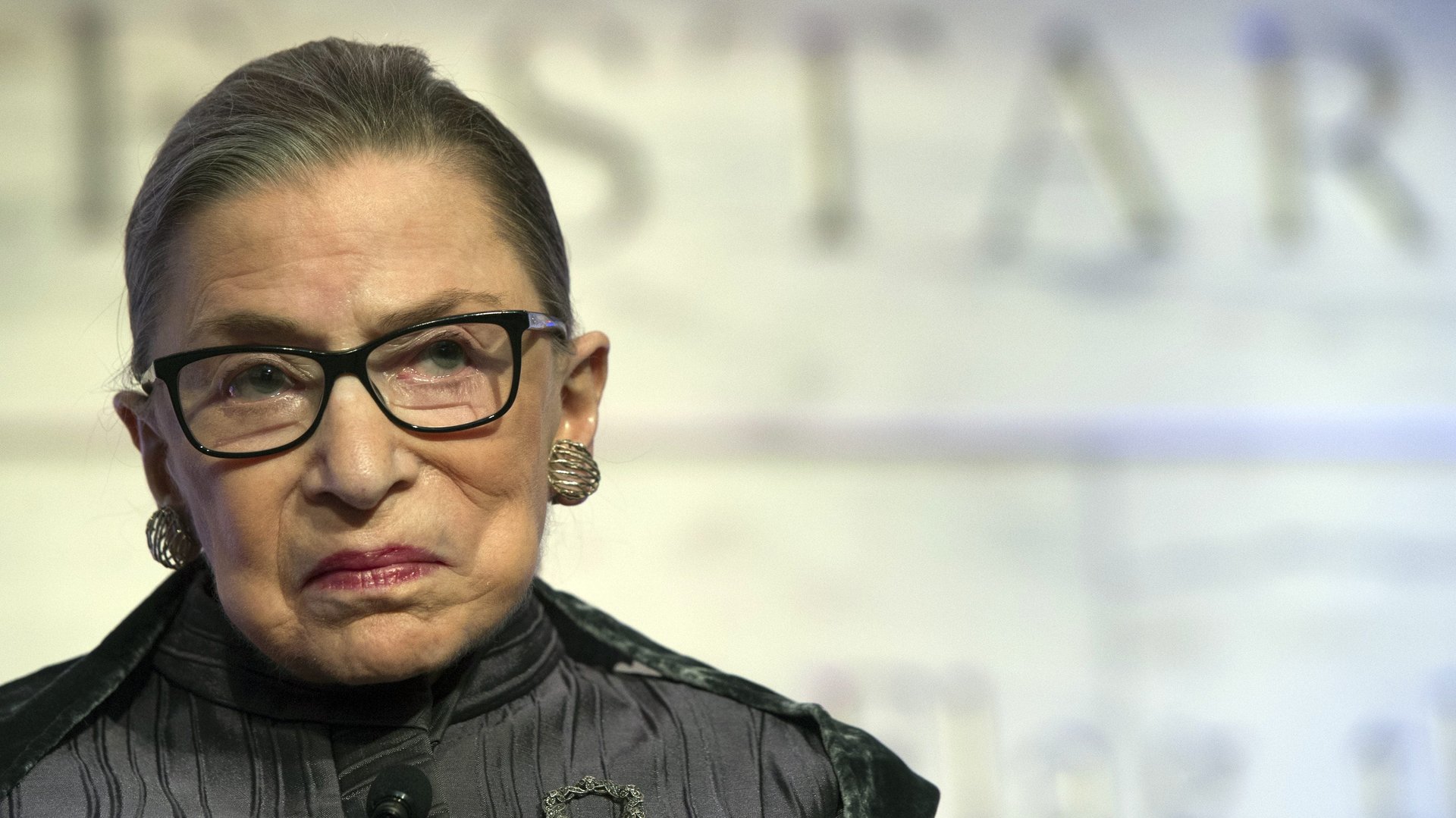It’s good for America that Ruth Bader Ginsburg didn’t keep her Trump opinions to herself
There’s a strange current that runs through American liberal intellectual circles—the idea that “telling it like it is” is an indulgence left to conservative politicians. What these smartypants fail to realize is that much of the rise of the presumptive Republican nominee, Donald Trump, is due to the fact that even though he mostly spews nonsense, he does so in a frank and unvarnished tone. This is a breath of fresh (albeit hot) air for voters who are only passingly familiar with Washington’s doings, and are generally disgusted by what they see and hear, when they bother to check in.


There’s a strange current that runs through American liberal intellectual circles—the idea that “telling it like it is” is an indulgence left to conservative politicians. What these smartypants fail to realize is that much of the rise of the presumptive Republican nominee, Donald Trump, is due to the fact that even though he mostly spews nonsense, he does so in a frank and unvarnished tone. This is a breath of fresh (albeit hot) air for voters who are only passingly familiar with Washington’s doings, and are generally disgusted by what they see and hear, when they bother to check in.
So when US Supreme Court Justice Ruth Bader Ginsburg called Trump “a faker” in the press, and then talked about her deceased husband’s likely reaction if Trump became president—a move to New Zealand—both sides had a field day with her comments. The New York Times editorial board told her to stick to her knitting. Meanwhile, Trump and his surrogates have teed off on Ginsburg, calling her both disrespectful and demented, and demanding an apology from, as Trump put it, the “Supreme Court judge.”
So patronizing, or perhaps ignorant, is Trump of the government he wants to lead that he can’t even be bothered to use Ginsburg’s correct title in attacking her—not her opinions, but her, personally—to the press. America already had eight years of a president with a penchant for mangling the English language—but Trump’s evolution on George W. Bush’s rhetorical style is truly insidious. His speaking style, whether through obfuscation or, again, ignorance, is to use broad, muddled statements. The meaninglessness of 90% of his words allow Americans to channel their hopes and fears (mostly fears) into votes for him. The remaining 10% of his speech is, for the most part, exactly the type of “nasty” talk that he either shrinks from or decries when it is leveled against him. The media ignores the stuff they can’t make sense of but then holds the door open for him when he levels a charge against a foe. That’s exactly what has happened here, with Ginsburg. And although Trump is wasting precious breath attacking a figure that the vast majority of the country doesn’t care about, liberals have ceded their counterpunch out of false sense of decorum and even outrage that a Supreme Court Justice dare speak her political mind.
This is a moment where liberals should be standing up for Ginsburg. Why should one of the most groundbreaking jurists in the Supreme Court’s history pretend to be objective about a potential future president and colleague? Ginsburg is responding to the completely incoherent policy agenda that Trump has put forth, and expressing concern about the runaway populism and cult of personality that is fueling his demagogic rise to power. She knows what she is doing in demarcating her ground, should a Trump presidency attempt to steamroll the court on which she serves. The forces Trump is marshaling are the same ones that have crumbled empires, republics, and nations in decades and centuries past. Again, why shouldn’t she be concerned? And why shouldn’t she say so out loud?
Ultimately the judiciary is a co-equal branch and a check on the executive and legislative branches. It’s true that the lower courts must operate by the rule of law, but the Supreme Court has a special place in the power structure of the nation. There’s no denying its political nature—and indeed, by obscuring it, the media does a disservice to Americans trying to understand how their system of government truly works.
The court has been involved in monumental decisions that have reshaped US society, especially during the dawn of the 21st century. Its workings—and our understanding of its membership—deserve more transparency, not less. The justices are not robots. They are politicians, among the most unique in our land, and they are most poorly understood class of them.
The Supreme Court justices’ responsibilities are mostly defined in the positive. That is, there are few activities they are proscribed from. Whatever tradition dictates about justices keeping their opinions to themselves, the evolution of our democracy should be the stronger, guiding force.